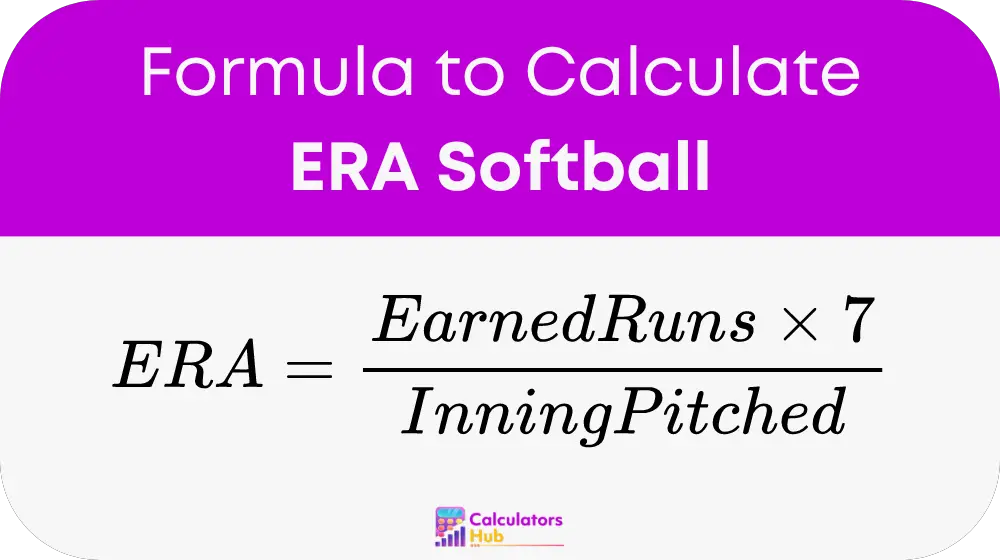The ERA Softball Calculator simplifies calculating a pitcher's effectiveness by allowing users to input the number of earned runs and innings pitched to quickly compute the ERA. This tool is crucial for evaluating which pitchers are best for critical game moments.
Formula of ERA Softball Calculator
The formula for calculating ERA in softball is:

Formula components:
- Earned Runs: Runs the opposing team scores based on the pitcher's performance, excluding fielding errors.
- 7: Represents the standard number of innings in a softball game.
- Innings Pitched: Total innings the pitcher throws, with conversions for partial innings (e.g., 1 out = 1/3 inning).
Using the ERA Calculator: A Step-by-Step Guide
To effectively use the ERA Softball Calculator:
- Input the total earned runs allowed by the pitcher.
- Enter the total innings pitched, adjusting for partial innings as needed.
- The calculator displays the ERA, assessing the pitcher's performance.
Conversion Table and Tools
| erm | Definition | Conversion |
|---|---|---|
| Outs | Individual outs recorded by a pitcher | 1 out = 1/3 inning |
| 2 outs = 2/3 inning | ||
| 3 outs = 1 full inning | ||
| Earned Runs | Runs that the opposing team scores solely from the pitcher’s actions | No conversion needed |
| Innings in a Softball Game | Standard number of innings in a softball game | 7 innings (standard game length) |
| Pitch Count | Total pitches thrown by the pitcher during a game | Used to assess pitcher fatigue |
Example of ERA Softball Calculator
Consider a pitcher who has allowed 5 earned runs over 18 outs (6 complete innings). Using the calculator: ERA = (5 x 7) / 6 = approximately 5.83 This result indicates the pitcher allows around 5.83 runs per game.
Most Common FAQs
Typically, a good ERA is below 3.00, showing the pitcher allows fewer than three earned runs per game on average.
ERA can differ across various play levels, reflecting the competitive environment and players' skill.